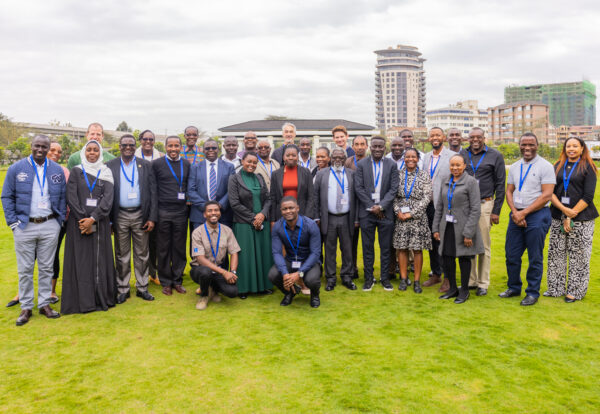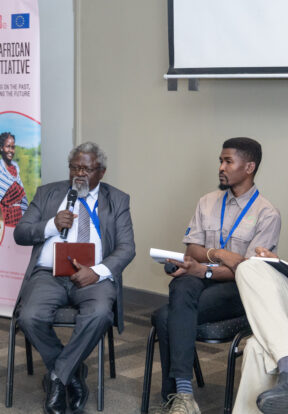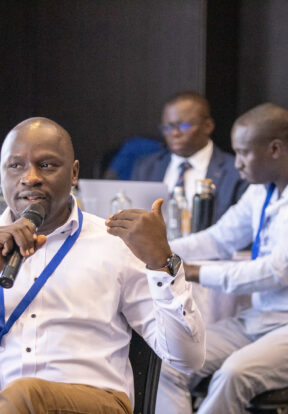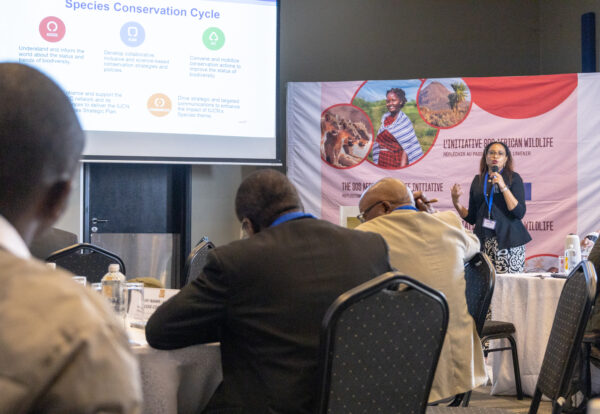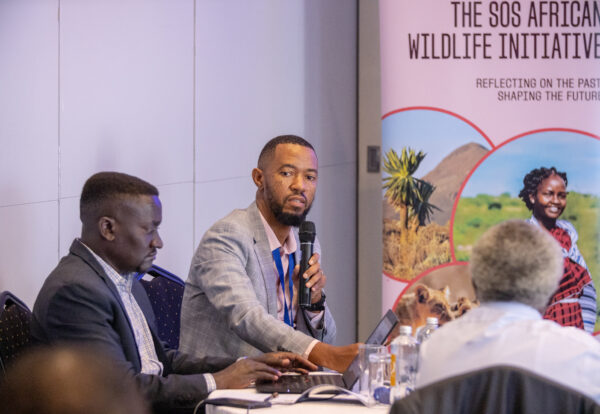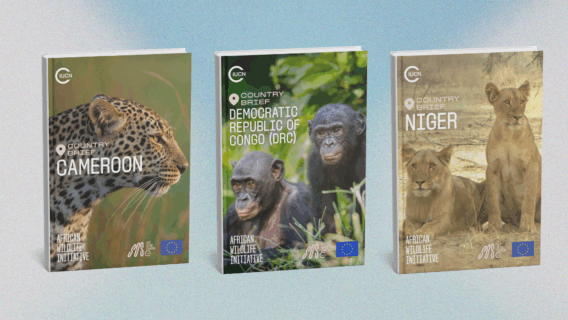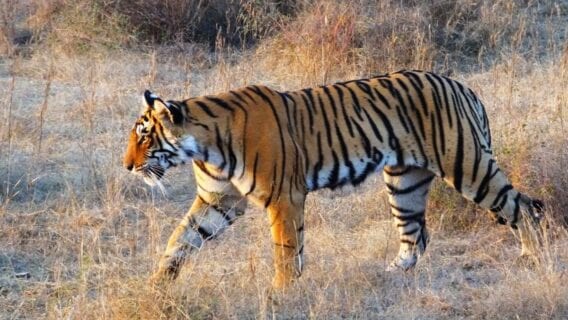New IUCN African Wildlife Initiative country briefs highlight conservation progress across East Africa
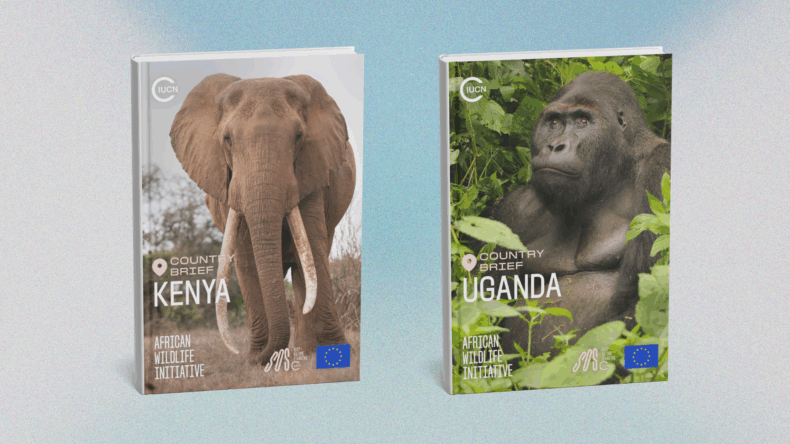
A new set of country reports released under the IUCN Save Our Species (SOS) African Wildlife Initiative (AWI) showcases conservation advances in Uganda and Kenya, and the pathways to scale them up. The briefs were launched as more than 30 conservation leaders, species experts, government agencies, local CSOs, and INGOs met in Nairobi, Kenya, from 5–6 August 2025 for the AWI regional workshop “Building from the experience of the African Wildlife Initiative: Advancing species conservation, pathways for sustainable impact in Eastern and Southern Africa”.
Together, the reports and the workshop reflect growing momentum across Eastern and Southern Africa to accelerate efforts toward achieving Target 4 of the Global Biodiversity Framework on halting human-induced species extinctions.
“These reports demonstrate how African-led conservation solutions which are grounded in science, community action, and strong partnerships, are turning the tide for threatened species. What we’re seeing in Kenya and Uganda proves that when we empower local stewards while scaling up proven approaches, we create lasting wins for both wildlife and people. This is exactly the kind of momentum needed to achieve our global biodiversity targets,” said Luther Bois Anukur, Regional Director of IUCN’s Eastern and Southern Africa Programme.
Kenya: Scaling up community conservation and species recovery
Kenya, a cornerstone of Africa’s biodiversity, boasts diverse ecosystems from vibrant coastal mangroves to vast savannahs, underpinning a robust tourism industry. Despite this, it faces persistent conservation challenges including habitat loss, poaching, human-wildlife conflict, and climate change, which place iconic species like the African elephant, black rhino, and Grevy’s zebra at risk. The IUCN SOS African Wildlife Initiative aimed to address these threats and implemented actions through nine projects that increased the management effectiveness of nearly three million hectares of critical habitat. The initiative also strengthened local capacity for sustainable livelihoods, ensured continued ranger employment, particularly during the pandemic to maintain on-the-ground presence and built the operational capabilities of grantees, enabling them to access larger funding opportunities.
Conservation efforts in Kenya demonstrate that aligning conservation with community needs is key to achieving lasting outcomes for threatened species and habitats. Projects have successfully reduced poaching in Tsavo, decreased illegal logging at Mount Kenya, and minimized sea turtle mortality in Kilifi. These achievements, which include near-zero Grevy’s zebra poaching in El Barta and eased human-wildlife conflict in Laikipia, highlight the effectiveness of integrated approaches combining habitat restoration, community engagement, technology, and strong partnerships.
Uganda: One Health and livelihoods at the heart of conservation
Uganda is a biodiversity-rich country, home to over half of the world’s mountain gorillas and diverse ecosystems, supported by an extensive network of protected areas. However, it grapples with significant conservation challenges such as habitat loss, poaching, and human-wildlife conflict. The IUCN SOS African Wildlife Initiative has six targeted grants to empower communities and enhance species protection across key landscapes.
Conservation efforts in Uganda showcase the success of integrated, community-led approaches. Key achievements include the elimination of retaliatory lion killings in Queen Elizabeth National Park, training former poachers to create wildlife art from snares, and the successful application of a “One Health” strategy to protect mountain gorillas and chimpanzees from COVID-19. These initiatives have reduced illegal activities, enhanced human-wildlife co-existence, and enhanced local livelihoods, emphasizing the importance of technological innovation and strong government collaboration.
Nairobi workshop: Catalyzing regional collaboration and scaling success
Held in Nairobi, Kenya, the Eastern and Southern Africa regional workshop convened stakeholders from civil society, government, and international organisations to reflect on achievements and outline future priorities. Participants stressed that isolated efforts cannot achieve the scale required for species protection. Instead, they called for stronger cross-border and cross-sectoral collaboration, community-centred and landscape-scale approaches, and equitable investment across all regions, including areas often overlooked.
Key themes from the workshop included:
- Addressing human-wildlife conflict through early warning systems, rapid response units, non-lethal deterrents, insurance schemes to offset losses, and better spatial planning to balance species needs with human activities.
- Science-policy communication to ensure biodiversity data is accessible and actionable for decision-makers, and to promote the replication of proven approaches.
- Policy alignment with the Kunming-Montreal Global Biodiversity Framework (KMGBF), learning from Uganda’s completed National Biodiversity Strategy and Action Plan (NBSAP), and strengthening links to Multilateral Environmental Agreements such as the Convention on Migratory Species (CMS) and the Convention on International Trade in Endangered Species (CITES).
- Empowering youth and integrating Indigenous knowledge, ensuring future conservation leaders are rooted in local contexts.
- Innovative financing such as biodiversity and carbon credits, fair contractual agreements with investors, and direct community access to funding.
- Transfrontier conservation models, such as lessons from the Kavango–Zambezi Transfrontier Conservation Area (KAZA), showing how shared tourism circuits and conservation-compatible enterprises can bring benefits across borders.
By the close of the workshop, participants reaffirmed that cross-sectoral partnerships, effective governance, sustainable financing, and empowered communities are the cornerstones of tackling biodiversity loss and safeguarding wildlife for future generations.
A platform for scaling impact
The SOS African Wildlife Initiative country briefs continue to serve as strategic resources for practitioners and policymakers. They document what works on the ground and provide clear recommendations for scaling and sustaining impact.
The Nairobi convening marks the second in a series of three regional workshops under the Initiative, following the West Africa workshop in Senegal. A final workshop is scheduled for September 2025 in South Africa, where the last brief in the series on South Africa will be launched.


